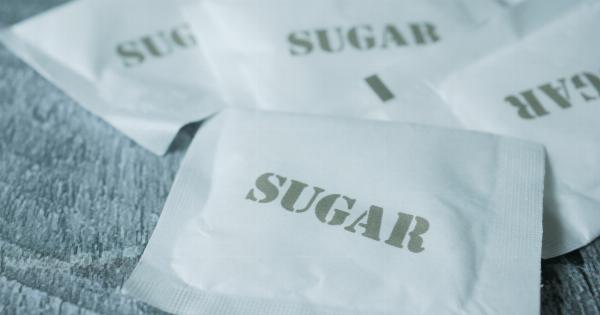Sweeteners have become a staple in many households, allowing us to enjoy the sweetness we crave without the calories and impact on blood sugar levels associated with sugar.
However, concerns over the health effects of artificial sweeteners have led many to search for natural alternatives that taste just as good without compromising their well-being.
Understanding the Drawbacks of Artificial Sweeteners
Artificial sweeteners like aspartame, sucralose, and saccharin have been widely used as sugar substitutes for decades, but their potential negative impact on health cannot be ignored.
These artificial options have been linked to various health issues, including weight gain, insulin resistance, digestive problems, and even an increased risk of cancer.
Natural Alternatives to Sweeteners
Fortunately, there are several natural sweeteners available that can be used as alternatives to traditional sugar and artificial sweeteners. These options offer a delightful sweetness without the added calories or potential health concerns.
1. Stevia
Stevia is a natural sweetener derived from the leaves of the stevia plant. It is known for its intense sweetness and zero-calorie content.
Stevia has become increasingly popular as a sugar substitute and can be found in various forms, including liquid extracts and powdered packets. It is a great option for those looking to reduce their sugar intake without sacrificing sweet taste.
2. Monk Fruit
Monk fruit, also known as luo han guo, is another natural sweetener gaining popularity. It is extracted from the monk fruit, a small green melon-like fruit native to Southeast Asia.
Monk fruit sweeteners contain zero calories and are typically available in liquid or powdered form. This sweetener is valued for its natural sweetness and is an excellent choice for individuals who want a sugar alternative without the potential health risks associated with artificial sweeteners.
3. Erythritol
Erythritol is a sugar alcohol that naturally occurs in certain fruits and fermented foods. It has a sweet taste but contains fewer calories compared to regular sugar.
Erythritol does not raise blood sugar levels or contribute to tooth decay, making it a popular choice among those following a low-carb or ketogenic diet. This sweetener is available in granulated form and can be used in baking or as a direct sugar replacement in beverages.
4. Xylitol
Xylitol is another sugar alcohol that is derived from birch trees or corn husks. It has a similar sweetness to sugar but with fewer calories.
Xylitol can be used as a one-to-one replacement for sugar in recipes and is commonly found in dental products like gum and toothpaste due to its ability to inhibit the growth of bacteria that cause tooth decay.
5. Coconut Sugar
Coconut sugar is derived from the sap of coconut palm trees and is considered a more natural alternative to refined sugar. It has a caramel-like flavor and can be used in a 1:1 ratio as a substitute for white or brown sugar.
While coconut sugar still contains calories, it retains some of the beneficial nutrients found in coconuts, including vitamins and minerals.
6. Maple Syrup
Maple syrup is a natural sweetener made from the sap of maple trees. It offers a distinct flavor and can be used as a versatile substitute for sugar in various recipes.
While it does contain calories, it also contains antioxidants and trace minerals, making it a healthier option compared to artificial sweeteners.
7. Raw Honey
Honey has been used for centuries as a sweetener and offers a multitude of health benefits. Raw honey, in particular, is rich in antioxidants, enzymes, and trace minerals.
It is important to note that honey should not be given to infants under one year old due to the risk of botulism. It can be used in moderation as a natural sweetener in beverages, baking, and cooking.
8. Agave Nectar
Agave nectar is derived from the agave plant, the same plant that is used to produce tequila. It has a low glycemic index, meaning it doesn’t cause a sharp rise in blood sugar levels.
Agave nectar can be used as a liquid sweetener in both hot and cold beverages, as well as for baking and cooking purposes.
9. Date Paste
Date paste is made by blending dates with water until a smooth consistency is achieved. It can be used as a natural sweetener in various recipes, from desserts to savory dishes.
Date paste not only adds sweetness but also offers fiber, potassium, and antioxidants.
10. Molasses
Molasses is a thick, dark syrup that is a byproduct of the sugar refining process. It has a rich flavor and is a good source of iron, potassium, and calcium.
While it is still a form of sugar, molasses can be used in moderation as a natural sweetener in baking and cooking.
Conclusion
When it comes to sweeteners, there are numerous natural alternatives available that offer the sweetness we crave without sacrificing taste or compromising our health.
By incorporating options like stevia, monk fruit, erythritol, and others into our daily lives, we can enjoy the delightful flavors we love while maintaining a balanced and healthy lifestyle.






























